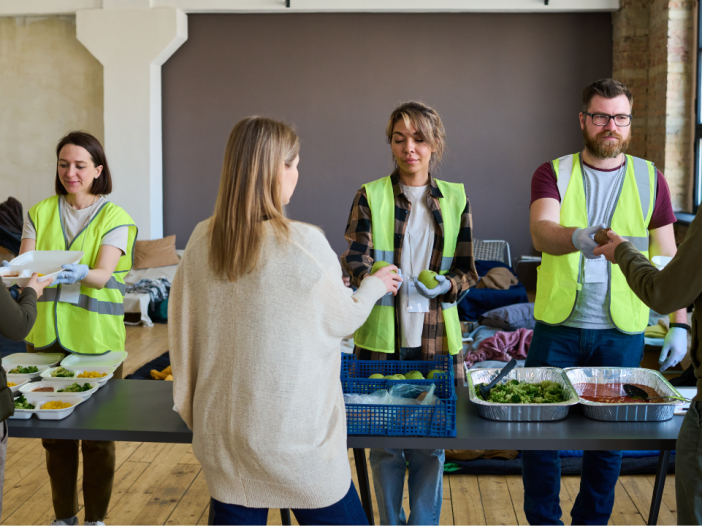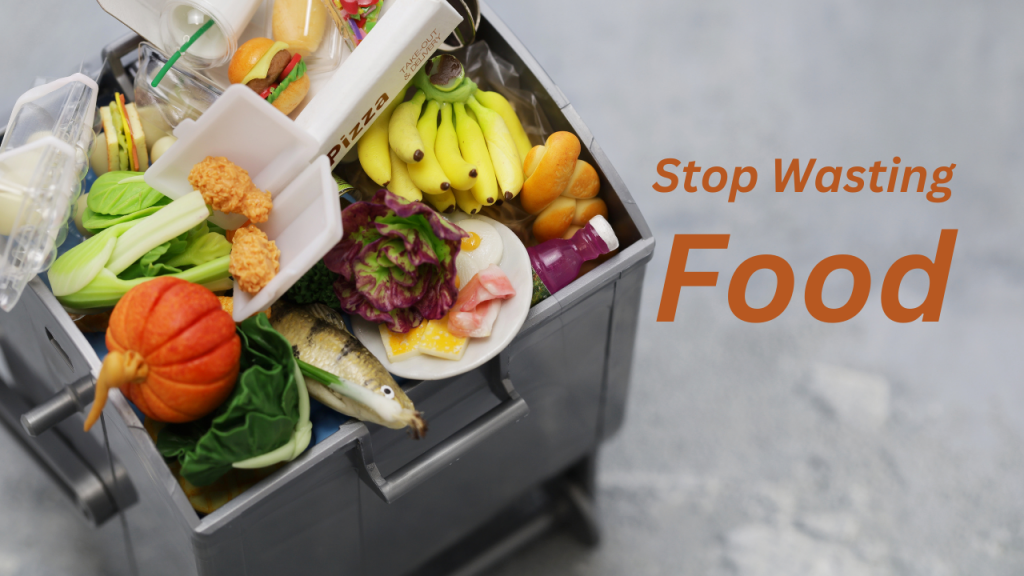
Managing food waste at food events is a crucial but often overlooked aspect of event planning. Not only does food waste impact the environment, but it also leads to unnecessary costs for event organizers. According to a report by the United Nations, around one-third of all food produced worldwide is wasted, and a significant portion of that happens during events like conferences, weddings, and festivals. Fortunately, there are numerous ways to mitigate food waste while still providing a fantastic culinary experience for guests. In this post, we’ll explore 10 effective ways to manage food waste at your food events and contribute to more sustainable event practices.
Effective Ways to Manage Food Waste for Food Events

1. Plan Accurately to Avoid Overordering
One of the primary reasons for food waste at events is overordering. Many event organizers struggle with estimating the right amount of food, often ordering more than is needed to ensure no guest goes hungry. However, this approach often results in surplus food that goes to waste.
To avoid overordering, it’s essential to accurately estimate the number of attendees and their food preferences. Take the time to research the guest list and consider factors such as dietary restrictions, age groups, and cultural preferences. For example, if your event has a significant number of vegetarians, plan your menu accordingly. Additionally, consider offering smaller portion sizes, as guests often leave food uneaten when it’s too much.
2. Opt for Sustainable Catering Options
When planning a food event, consider selecting catering services that prioritize sustainability. Many caterers now focus on using locally sourced organic and seasonal ingredients. By choosing these sustainable options, you can reduce the environmental impact of food production and transportation.
Sustainable caterers are also more likely to be mindful of portion sizes and food waste management. They may have practices in place for reducing waste, such as reusing ingredients and composting food scraps. Supporting food vendors who prioritize sustainability not only benefits the environment but also sends a positive message to your attendees about the importance of responsible food choices.
3. Use Food Waste Apps to Track Leftovers
In today’s digital world, various apps can help track leftover food and manage food waste. Apps such as OLIO or ‘Too Good To Go’ allow users to share surplus food with local communities, ensuring that no food goes to waste.
By incorporating these apps into your event, you can make it easier for guests or event organizers to distribute leftovers to those in need. These apps typically connect individuals and organizations with surplus food to local food banks or individuals who are eager to receive it. Using these apps is a practical, efficient, and eco-friendly way to manage event food waste.
4. Encourage Guests to Take Leftovers
Encouraging your guests to take home leftover food is a simple yet effective way to reduce food waste. Often, leftovers are discarded simply because no one takes the initiative to bring them home. By providing guests with the option to take food with them, you can ensure that surplus food doesn’t go to waste.
To make this process easier, provide guests with take-home containers or bags. Set up stations where they can collect leftovers, and even consider offering a “doggie bag” at the end of the event. Not only will this reduce food waste, but it will also provide guests with a convenient option to enjoy the food later.
5. Donate Leftovers to Charitable Organizations
Another great way to manage food waste is by donating any remaining food to local charities. Many food banks, shelters, and other nonprofit organizations are happy to accept leftover food from events. Not only does this help those in need, but it also ensures that no food goes to waste.
Before the event, reach out to local charities to establish a partnership. Make sure to communicate with your caterer and event venue about your intention to donate food. Also, ensure that food safety standards are met and that the donation process is easy and streamlined. This is a win-win situation, as it helps reduce food waste while benefiting your community.
6. Repurpose Leftovers for Future Meals
If donating leftover food isn’t feasible, consider repurposing it for future meals. Many event venues or caterers are happy to reuse leftover food in creative ways, such as turning it into soups, salads, or sandwiches for future events. This is a great option if you want to reduce food waste while still ensuring that the food is put to good use.
For example, leftover vegetables could be used in soups or stews, while leftover bread can be made into croquettes. By working with your catering team, you can find ways to repurpose food creatively and responsibly. This not only reduces food waste but also helps to keep future event costs low.
7. Educate Your Guests on Waste Reduction
The role of guests in reducing food waste cannot be overstated. By educating them about the importance of minimizing food waste, you can increase their awareness and encourage more responsible behavior. Consider providing tips or signage at the event about how they can reduce waste, such as only taking what they can eat or packing food to take home.
Another effective way to raise awareness is by hosting a workshop or discussion on sustainable eating practices. Providing guests with information about the environmental impact of food waste and how they can contribute to a more sustainable event can make a significant difference.
8. Use Composting for Food Scraps
Composting is an excellent way to manage food scraps at events. Setting up compost bins at your event ensures that any organic waste, such as fruit peels or vegetable scraps, is disposed of in an environmentally friendly manner.
Composting is not only beneficial for the planet, but it also reduces the amount of waste sent to landfills. It’s a simple and effective way to handle food waste that cannot be avoided. Work with your caterer or event venue to set up a composting plan and ensure that guests are aware of where to dispose of their food scraps.
9. Implement Digital Menus for Less Printing
Digital menus are an effective way to reduce paper waste at food events. Instead of printing physical menus for each guest, consider using QR codes that guests can scan to view the menu on their phones. This not only saves paper but also gives guests easy access to detailed information about each dish, including its ingredients and source.
Digital menus also allow you to showcase more sustainable food options, which can help reduce food waste by encouraging guests to make more thoughtful choices. It’s a modern, eco-friendly solution that aligns with the growing trend of sustainable event planning.
10. Offer Smaller, More Frequent Servings
When it comes to food at events, bigger isn’t always better. Offering smaller, more frequent servings helps to reduce food waste by ensuring that guests only take as much as they can eat. Rather than serving large portions of food, opt for buffet-style settings or plated meals with smaller portions.
Smaller servings not only reduce waste but also allow guests to sample a variety of dishes. Additionally, it encourages them to take only what they can consume, reducing the likelihood of leftover food. This approach is particularly effective at large-scale events, where overproduction is a common issue.
Related: Best Food Truck for Cooperate Events
Conclusion
Managing food waste at events doesn’t have to be complicated. With a little planning and a focus on sustainability, you can significantly reduce the environmental impact of your event while providing a fantastic experience for your guests. From accurate food planning to donating leftovers to charity, these 10 strategies offer practical solutions for reducing food waste. By adopting these approaches, you can host an event that not only delights your guests but also promotes sustainability and responsible consumption.








